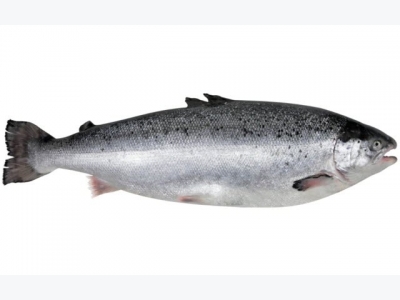GM canola derived lipids could replace fish oil in salmon feed

© istock
Early trials and analyses of omega-3 rich oil from genetically modified canola would indicate that it is safe to use in salmon feed.
The findings show little differential in health and growth outcomes for fish fed the canola or the fish oil derived fatty acids, said Bente Ruyter, project manager at Nofima.
The Norwegian organization, one of the largest institutes for applied research within the fields of fisheries, aquaculture and food research in Europe, has been performing feed trials on salmon using GM omega-3 canola oil from the Australian company Nuseed.
"It was tested at two life stages - one trial in freshwater at the earliest life stage and one in seaweater with larger fish," she told us.
She said they tested the canola oil at a variety of inclusion levels in the different trials - from zero to up to 100% replacement of fish oil.
"We looked at many quality, health and growth parameters and the results more or less show no difference between fish fed fish oil or fish fed the DHA rich canola oil at the different dietary levels. Of course, the fatty acid composition of the fillet are influenced by the dietary inclusion level of the oil."
The results of the omega-3 canola trials would be published in open journals in due course.
"We plan to submit the first article to a journal [in] early 2018."
The project is financed by the Norwegian Seafood Research Fund (FHF) and is in collaboration with NIFES from Norway and CSIRO from Australia.
Commenting during our Innovation in Aqua Feed webinar yesterday, Dr Rune Waagbø, research director, NIFES, said the development was positive, that it adds to the range of omega-3 lipid sources available. He said the knock-on effect is that supply constraints around fish oil will no longer be a limiting factor in relation to the future growth of the salmon sector.
NIFES has also been analyzing Nuseed's omega-3 canola oil. The Australian company explained that microalgae genes were added to the canola, using genetic breeding technologies, so that the crop would be rich in DHA.
NIFES reported that it did not find any DNA traces of genetically modified rapeseed in the canola oil.
Omega-3 oil research collaboration
In terms of the background to the development of the Nuseed product, the company formed a research collaboration with CSIRO and the Australian Grains Research and Development Corporation (GRDC) in 2011 with the aim of developing the canola oil.
In March this year, we reported on how Nuseed is awaiting the regulatory approval needed to bring its long-chain GM omega-3 canola seed to the US, Canada and Australia.
The company is looking at those three countries because they are already “key canola growing regions,” said a spokesperson back then.
Pending approvals, commercialization of the canola seed would start in 2018 or 2019.
Nuseed would sell the canola under license to growers. The canola would be cultivated in a closed-loop grain and oil processing system.
The omega-3 oil generated by the plant is expected to be available for use in feeds for several fish species.
Nuseed estimates that one hectare of canola production should produce a similar omega-3 yield to that generated by 10,000kg of fish.
Related news
 New rules for UK fishing industry from January 1
New rules for UK fishing industry from January 1 New rules for the fishing industry, coming into force from January 1, 2018, aim to further reduce discards of fish.
 Hope for gene editing in aquaculture
Hope for gene editing in aquaculture If adopted, this could offer hope that a number of current projects – in particular those using gene editing on salmon
 High hopes for novel catfish vaccine
High hopes for novel catfish vaccine Columnaris is one of the most serious bacterial infections in the aquaculture industry today – affecting numerous freshwater fish species